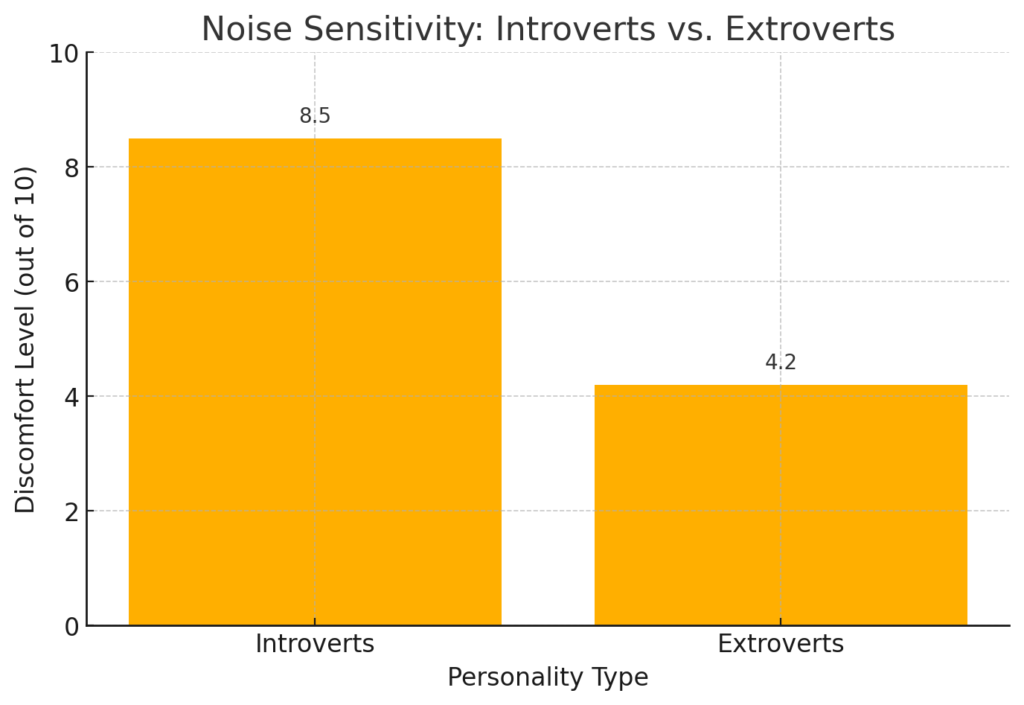Introversion is a personality trait found in nearly half the population, yet it is often misunderstood in a society that favors extroverted behaviors. We live in an extroverted world where Western culture values outgoing and sociable behaviors as the ideal. According to studies like those by Susan Cain, author of Quiet, introverts thrive in quieter, less stimulating environments and may find certain extroverted norms uncomfortable or draining. This comprehensive blog post explores what introverts commonly dislike, why they feel this way, and how society can adapt to better accommodate them.
Social Interactions: The Introvert’s Perspective
Common Misconceptions About Introverts
Debunking Myths and Understanding True Introversion
Introverts are often misunderstood, leading to several misconceptions about their personality and behavior. One prevalent myth is that introverts are inherently shy or socially anxious. While some introverts may experience shyness, many are simply more reserved and prefer to observe before jumping into conversations. This thoughtful approach allows them to contribute meaningfully when they do speak.
Another common misconception is that introverts are antisocial or dislike spending time with others. In reality, many introverts enjoy social interactions, especially when they involve deep, meaningful conversations. They may need some time to recharge and reflect on their experiences afterward.
Recognizing that introversion is not a flaw or weakness is crucial. Introverts possess numerous strengths, such as being excellent listeners, focusing deeply, and creative problem solvers. Understanding and accepting introversion can create a more inclusive and supportive environment for all personality types, allowing everyone to thrive uniquely.
Unannounced Social Encounters and Unexpected Phone Calls
One of the biggest annoyances for introverts is unexpected social interaction, which can particularly annoy introverts. When a colleague suddenly approaches them with questions or when friends drop by without notice, it disrupts their mental focus and can be very stressful.
Why Unplanned Social Interactions Are Stressful for Introverts
- Introverts often prefer time to mentally prepare for interactions.
- Unplanned encounters interrupt their deep-thinking process, leading to cognitive overload.
- Unlike extroverts who rely on quick-thinking skills, they may need more time to collect their thoughts before responding.
- Unexpected phone calls can be particularly challenging, as they disrupt the need for mental preparation and can drain emotional energy.
Loud Environments, Excessive Noise, and Personal Space

Introverts prefer quieter environments; continuous, droning, loud noise can be overwhelming. Research from the Journal of Personality and Social Psychology suggests that introverts have a lower tolerance for noise, as their brains are more sensitive to external stimuli.
Impact of Loud Environments on Introverts:
- Overstimulation: Introverts process information deeply, so a noisy environment can lead to mental exhaustion.
- Inability to Focus: Loud surroundings can make it difficult for introverts to concentrate or enjoy conversations.
- Social Exhaustion: Prolonged exposure to loud environments can drain an introvert’s energy faster.
Data Visualization: Noise Sensitivity in Introverts vs. Extroverts

The graph above illustrates the difference in noise sensitivity between introverts and extroverts. For introverts, noisy environments can be downright exhausting, significantly draining social interactions. Introverts reported a significantly higher discomfort level (8.5 out of 10) in noisy environments than extroverts (4.2 out of 10). This highlights why introverts avoid loud settings and prefer quieter, more peaceful spaces.
Communication Styles: A Preference for Depth Over Small Talk

The Challenge of Small Talk
Introverts often dislike small talk, finding it shallow and unengaging. Among the things that annoy introverts, small talk stands out as particularly frustrating. According to a study published in Psychological Science, introverts tend to seek deeper, more meaningful conversations rather than surface-level chatter.
Reasons Introverts Dislike Small Talk:
- Lack of Depth: Small talk focuses on trivial topics, which may feel unimportant or draining for introverts.
- Cognitive Effort: Introverts prefer to think before speaking, making the spontaneity of small talk challenging.
- Preference for Meaningful Interaction: Introverts enjoy discussing ideas, concepts, or personal experiences over casual banter.
Would you like to proceed with more data visualizations and a table on common communication preferences or move to the next section on social norms and expectations?
Mentally Prepare for Social Interactions with Introverts
Strategies for Introverts to Navigate Social Settings
For many introverts, social interactions can be mentally and emotionally taxing. However, with some preparation, these experiences can become more manageable and enjoyable. Here are some strategies to help introverts navigate social settings:
- Take Time to Prepare: Reflect on your thoughts and feelings before attending a social event. Consider what you hope to achieve from the event and what aspects you look forward to. This mental preparation can help you feel more grounded and confident.
- Practice Relaxation Techniques: Techniques such as deep breathing, meditation, and yoga can significantly reduce stress and anxiety before a social event. These practices help calm the mind and body, making it easier to engage with others.
- Set Boundaries: If you feel overwhelmed, it’s perfectly okay to decline social invitations or take breaks from socializing. Prioritize your needs and well-being by setting clear boundaries protecting your energy.
- Find a Quiet Space: If you start feeling overwhelmed during a social event, seek a quiet space to take a break and recharge. Even a few minutes of solitude can make a big difference.
- Bring a Friend: Having a trusted friend by your side can make social interactions less daunting. A supportive companion can help you feel more comfortable and provide a sense of security.
By mentally preparing for social interactions, introverts can approach these situations with greater confidence and ease, making the experience more enjoyable and less draining.
Building Strong Relationships with Introverted Friends
Fostering Trust and Understanding in Friendships
Building strong relationships with introverted friends requires a deep understanding and acceptance of their unique needs and personality traits. Here are some tips to help foster trust and understanding in these friendships:
- Respect Their Boundaries: Introverts often need time alone to recharge. Respect their need for personal space and don’t take it personally if they decline social invitations or need downtime.
- Listen Actively: Introverts tend to be great listeners and appreciate when others reciprocate. Listen actively to what they say, showing genuine interest and empathy.
- Avoid Small Talk: Many introverts find small talk awkward or draining. Instead, try to engage in deeper, more meaningful conversations that allow for a genuine connection.
- Be Patient: Introverts may take longer to open up and share their thoughts and feelings. Be patient and give them the time to feel comfortable and trust you.
- Show Appreciation: Introverts often value thoughtful gestures and kind words. Show your appreciation for their friendship through small acts of kindness and genuine expressions of gratitude.
By understanding and accepting the needs and personalities of your introverted friends, you can build strong, meaningful, fulfilling relationships for both parties. These connections, based on mutual respect and understanding, can become some of your life’s most rewarding and lasting friendships.







Leave a Reply